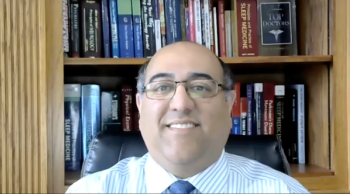
Raman Malhotra, MD, associate professor of neurology at Washington University in St. Louis, discussed the importance inquiring about patients’ sleep, as well as the dangers of insufficient sleep.

Raman Malhotra, MD, associate professor of neurology at Washington University in St. Louis, discussed the importance inquiring about patients’ sleep, as well as the dangers of insufficient sleep.

Here's what is coming soon to NeurologyLive.

Total lesion volume and index lesion-related severity correlated with EDSS scores and cognitive performance, while volumetric cortical and subcortical gray matter correlated less strongly.

Fabio Nascimento, MD, clinical fellow at Massachusetts General Hospital, spoke about his research on the alarming lack of knowledge on SUDEP and its risk factors among trainees.

Research into silent myocardial infarction may help identify cause of ischemic strokes that lack etiology, as well as identify better therapeutic strategies to combat recurring stroke.
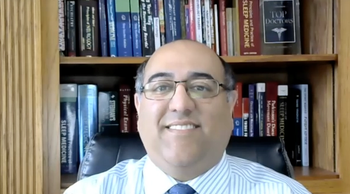
Associate professor of neurology at Washington University in St. Louis discussed returning to normalcy following the COVID-19 pandemic and the nascent effects experts have seen on sleep health.

Neurology News Network for the week ending July 10, 2021.

Take 5 minutes to catch up on NeurologyLive's highlights from the week ending July 9, 2021.

Janet Woodcock, MD, acting commissioner of the FDA, called for an inquiry by the Office of the Inspector General into possible interactions between agency officials and Biogen that "may have occurred outside of the formal correspondence process."

Each of the 2 identical twin phase 3 trials, titled ENSURE-1 and ENSURE-2, are expected to enroll approximately 1050 adult patients with active relapsing multiple sclerosis.
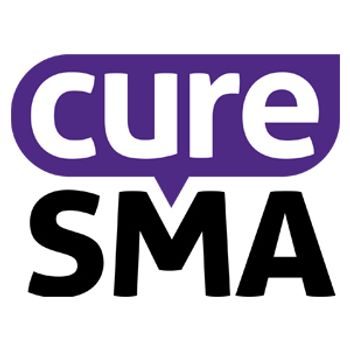
Suggestions from Mary Anne Ehlert, founder and president, Protected Tomorrows, include getting involved with the community and making the most of benefits and programs.
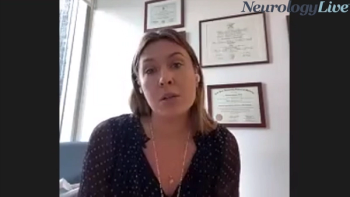
The pediatric headache specialist at NYU Langone provided an inside perspective on the effect that societal stigmas have on those with pediatric migraine and how to address those stigmas.
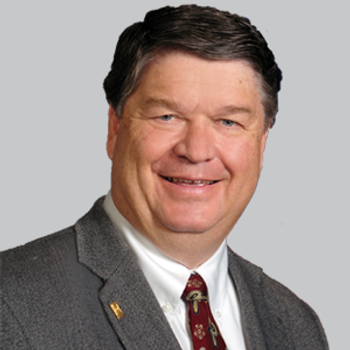
The study was conducted at Wright-Patterson Air Force Base to examine the effect of fatigue on cognition and mood within the military population.

Advocacy organization Cure SMA recap their recently concluded meeting, with notable presentations and medical education sessions led by world leaders.

Since 2016, there has been consistent growth in the number of Alzheimer disease trials sponsored both in part and fully by academic medical centers and/or the National Institutes of Health.
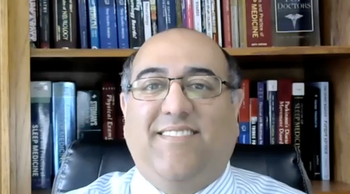
Raman Malhotra, MD, associate professor of neurology at Washington University in St. Louis, detailed a new position statement from AASM on the vitality of sleep.

The newly updated label language emphasizes the Alzheimer disease stages in which aducanumab was studied, with no additional changes made to its approval pathway.

Reduced cord cross-sectional area and a higher number of cervical cord lesions were the only significant predictors of an EDSS score equal to 6.0.
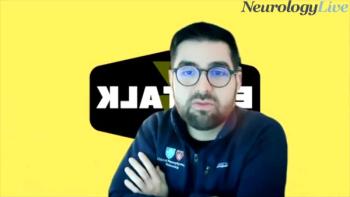
The clinical fellow at Massachusetts General Hospital discussed whether SUDEP knowledge is at an appropriate level for neurologists and those in other neurology subspecialties.

Analyses suggest treatment of Parkinson disease with amantadine (Gocovri; Adamas) may improve freezing and tremor, as well as other M-EDLs.

The original Narcolepsy Severity Scale was reformulated with the driving-related item removed to assess a pediatric version for the school-aged and adolescent narcolepsy type 1 population.

The acute care nurse practitioner at Overlook Medical Center spoke to the importance of having a multidisciplinary team when treating patients with stroke and the gaps that advanced practice providers can help fill.
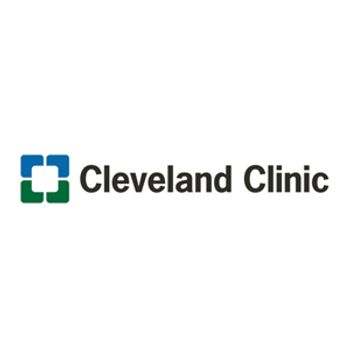
Adverse effects of trimethylamine N-oxide were highlighted, as well as the correlation between elevated levels of the byproduct and cardiovascular disease.

The chief medical officer of Scholar Rock provided background on the company’s investigational SMA treatment and its clinical benefit when applied with nusinersen (Spinraza; Biogen).

The effect pridopidine had on reducing mutant HTT-induced endoplasmic reticulum stress via the activation of sigma-1 receptor provided additional evidence of its therapeutic potential.

The acute care nurse practitioner at Overlook Medical Center discussed the presentation she gave at the Atlantic Health Stroke Symposium on the care of the hemorrhagic stroke in the neuro-ICU setting.

The basis for the approval was data from the phase 3 SAkuraSky and SAkuraStar studies, which combined included more than 170 patients who were treated with either satralizumab or placebo.

NeuroMetrix will be evaluating the effectiveness of the transcutaneous electrical nerve stimulation platform in pain relief for patients with neuromyelitis optica spectrum disorder.

Although existing research has shown structural differences between multiple sclerosis and neuromyelitis optica spectrum disorder in following optic neuritis, the new report also covers non–optic neuritis eyes.

The chief medical officer of Scholar Rock discussed topline results from the phase 2 TOPAZ study of apitegromab in patients with spinal muscular atrophy.